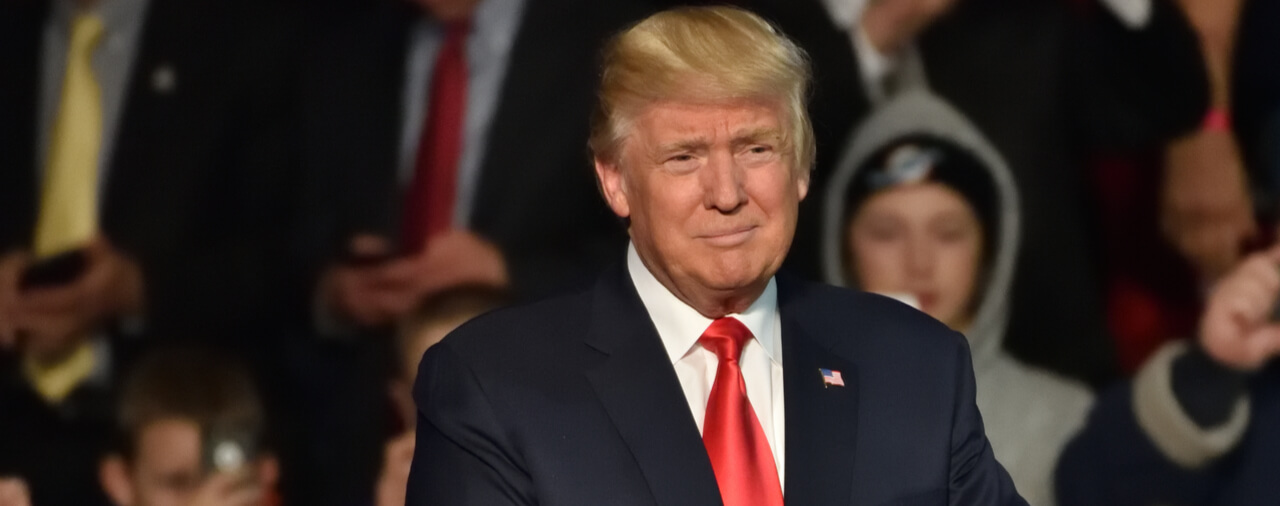- Introduction
- Background
- President Trump’s Decision to Terminate Deferred Enforced Departure for Liberians
- Implementing the Wind-Down Period
- Conclusion
Introduction
On March 27, 2018, President Donald Trump issued a Presidential Memorandum for the Secretary of State and the Secretary of Homeland Security. The Memorandum ends Deferred Enforced Departure for nationals of Liberia effective March 31, 2019. DED has allowed certain Liberian nationals to remain in the United States when they would have otherwise been removable. In this post, we will briefly examine President Trump’s reasoning and what the decision means going forward.
We have uploaded President Trump’s Memorandum here: [PDF version].
To learn about what this means for employment authorization for affected Liberians, please see our companion article [see article].
Background
The Presidential Memorandum begins by explaining that, since 1991, many Liberian nationals have been eligible for either Temporary Protected Status (TPS) or Deferred Enforced Departure. Here, it is worth noting that the last designation of Liberia for TPS was terminated on May 21, 2017, meaning that Liberian nationals are no longer eligible for TPS [PDF version].
In 1999, former President Bill Clinton first authorized Deferred Enforced Departure for Liberians. Subsequent to that initial 1-year grant of Deferred Enforced Departure for Liberians, it was extended continuously by former Presidents George W. Bush and Barack Obama. The most recent extension of Deferred Enforced Departure for Liberians occurred in 2016. That extension is slated to expire on March 31, 2018.
President Trump’s Decision to Terminate Deferred Enforced Departure for Liberians
President Trump, through consultation with appropriate executive departments and agencies, determined that conditions have improved in Liberia such that it “is no longer experiencing armed conflict and has made significant progress in restoring stability and democratic governance.” He also noted that Liberia has made progress in “reconstruction from prior conflicts” and in its ability to diagnose and contain future outbreaks of Ebola.
For the foregoing reasons, President Trump determined that the conditions in Liberia do not warrant a further extension of Deferred Enforced Departure beyond March 31, 2018. However, President Trump determined that it is in the foreign policy interests of the United States to afford an orderly transition (“wind-down”) for current Liberian Deferred Enforced Departure beneficiaries. He determined that a 12-month wind-down period would satisfy these foreign policy interests by giving the Liberian government time to reintegrate returning citizens and by providing current Liberian Deferred Enforced Departure beneficiaries who are not eligible for any other immigration benefits or relief the opportunity to make necessary arrangements to prepare to depart the United States.
Implementing the Wind-Down Period
President Trump provided the Secretary of Homeland Security with instructions for implementing his decision.
He directed that the termination of Deferred Enforced Departure for Liberian beneficiaries will take effect on March 31, 2019.
Certain Liberian Deferred Enforced Departure beneficiaries will be eligible to benefit from the wind-down period and maintain employment authorization during the wind-down period [see article]. In order to benefit, the Liberian beneficiary must have continuously resided in the United States since October 1, 2002. However, any Liberian Deferred Enforced Departure beneficiaries described in one or more of the following categories will not be eligible to benefit from the wind-down period.
First, any Liberian who is ineligible for TPS for reasons found in section 244(c)(2) of the Immigration and Nationality Act (INA) will be ineligible to benefit from the wind-down period. Section 244(c)(2) renders ineligible for TPS aliens who are inadmissible for grounds other than those found in section 212(a)(5) (public charge [see article]) or 212(a)(7) (certain document-related grounds). An alien is eligible for waivers of any ground of inadmissibility for humanitarian purposes or to ensure family unity unless he or she is inadmissible under section 212(a)(2)(A) or (2)(B) (relating to criminals), section 212(a)(2)(C) (drug offenses), or sections 212(a)(3)(A), (3)(B), (3)(C), or (3)(E) (relating to national security and participation in Nazi persecution or in genocide).
Second, if the Secretary of Homeland Security determines that the removal of a Liberian Deferred Enforced Departure beneficiary is in the interest of the United States, that individual will be ineligible to benefit from the wind-down period.
Third, if the Secretary of State determines based on reasonable grounds that a beneficiary’s presence or activities in the United States would have potentially serious adverse foreign policy consequences to the United States, that individual will be ineligible to benefit from the wind-down period.
Fourth, individuals who voluntarily returned to Liberia or their country of last habitual residence will be ineligible to benefit from the wind-down period.
Fifth, any beneficiaries who were deported, excluded, or removed prior to March 28, 2018, will be ineligible to benefit from the wind-down period.
Finally, individuals subject to extradition will be ineligible to benefit from the wind-down period.
Conclusion
Eligible Liberian Deferred Enforced Departure beneficiaries may benefit from the one-year wind-down period of Deferred Enforced Departure for Liberia. During that time, individuals may seek any immigration benefit to remain in the United States for which they may be eligible. However, those individuals and individuals who are either not eligible for other benefits or who do not otherwise plan to seek other benefits should prepare to return to Liberia by the March 31, 2019 termination date. A Liberian Deferred Enforced Departure beneficiary should consult with an experienced immigration attorney for a case-specific analysis of whether he or she may be eligible for any other immigration benefit.
Please remember to see our companion article on employment authorization for Liberians during the Deferred Enforced Departure wind-down period [see article].





